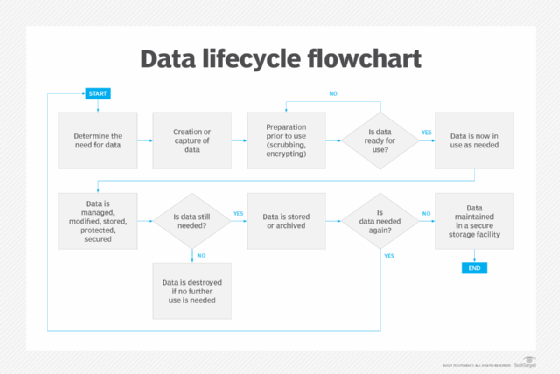Enhancing Cyber Security through Advanced Data Destruction Techniques
Enhancing Cyber Security through Advanced Data Destruction Techniques
Blog Article
The Important Nature of Information Devastation in Upholding Computer Safety And Security Solutions and Protecting Against Unauthorized Accessibility
In an era where data violations and identity burglary are significantly prevalent, the importance of reliable data damage can not be overemphasized. Different approaches, from data wiping to physical damage, serve as critical safeguards versus unauthorized accessibility.
Value of Information Destruction
In an increasingly digital globe, the relevance of information devastation can not be overstated. As organizations accumulate vast quantities of delicate info, the possible consequences of falling short to properly manage and dispose of that data become significantly extreme. Information breaches, identity burglary, and corporate espionage posture considerable hazards, highlighting the requirement of efficient information damage methods.

Furthermore, as innovation evolves, so as well do the approaches whereby harmful stars look for to manipulate delicate info. Organizations should continue to be alert and aggressive in their data damage techniques to secure against these developing dangers. By prioritizing information damage, firms not only shield their assets but additionally foster count on amongst customers and stakeholders, showing a commitment to liable information monitoring and safety practices.
Methods of Effective Information Devastation
To guarantee the full and irreversible damage of sensitive data, companies can use a variety of reliable approaches customized to their specific needs. One of the most common techniques is information cleaning, which includes utilizing specialized software application to overwrite existing data several times, making healing virtually difficult. This is especially beneficial for tough drives and solid-state drives, where traditional removal techniques are poor.
An additional efficient method is degaussing, which uses strong electromagnetic fields to disrupt the magnetic domain names on storage space media, providing the data irretrievable. This technique is specifically matched for magnetic storage space devices, such as tape drives and hard drives.
Physical damage is additionally a feasible choice, entailing the shredding, crushing, or incineration of storage space devices. This approach guarantees that data can not be recovered, making it suitable for organizations taking care of very delicate info.

Compliance With Data Security Laws
Organizations must not only concentrate on reliable information damage approaches however also make sure compliance with data defense guidelines that govern just how sensitive details is taken care of and gotten rid of. Sticking to these regulations is important for securing individual data and keeping consumer depend on. Regulations such as the General Information Protection Regulation (GDPR) in the European Union and the Medical Insurance Transportability and Accountability Act (HIPAA) in the USA impose strict guidelines on information administration, which include requirements for the safe and secure disposal of sensitive information.
To attain compliance, organizations have to carry out extensive information damage plans that align with these legal frameworks. This includes determining data that needs damage, establishing protocols for safe and secure methodsâEUR" such as shredding physical media or using software that satisfies sector criteria for data wipingâEUR" and preserving comprehensive documents of destruction activities. Regular audits should be carried out to guarantee adherence to these plans and to recognize any kind of prospective locations for enhancement.
Failing to adhere to information defense guidelines can cause substantial lawful ramifications, consisting of large penalties and damages to a company's reputation. Therefore, integrating compliance into data devastation methods is not just a lawful commitment yet likewise a crucial element of a robust details protection method.
Repercussions of Poor Information Handling
Poor information handling can lead he has a good point to severe repercussions that prolong beyond immediate operational problems. Organizations may face considerable financial losses as a result of information breaches, which commonly result in costly remediation initiatives, legal charges, and regulative fines. These financial ramifications can stress sources and prevent growth, inevitably impacting an organization's profits.
Additionally, inadequate data handling can seriously harm a company's track record. Customers, stakeholders, and partners might lose count on an entity that fails to protect sensitive info, leading to lowered customer commitment and prospective loss of service opportunities. This disintegration of count on can take years to rebuild, if it can be recovered in all.
In addition, organizations can face legal ramifications arising from non-compliance with information security guidelines. Such infractions might result in fines and examinations, intensifying the economic burden and more tarnishing the company's picture.
In the realm of cybersecurity, insufficient information administration practices can develop vulnerabilities that make systems much more vulnerable to unauthorized gain access to and cyberattacks. Eventually, these effects emphasize the vital significance of implementing durable data managing procedures to protect sensitive information and keep business honesty.
Ideal Practices for Secure Data Disposal


To start with, information should be identified according to its level of sensitivity. Delicate information requires much more rigorous disposal approaches, such as shredding physical files and utilizing innovative software program for electronic data wiping. Employing licensed information destruction solutions ensures compliance with sector policies and criteria.
Second of all, organizations need to carry out a data disposal plan that mandates regular audits. This plan needs to lay out the procedures for data retention and damage, making certain that out-of-date data is dealt with website link promptly and securely. Educating employees on these protocols is vital to promoting a culture of safety awareness.
Lastly, maintaining thorough documents of disposed data boosts responsibility and provides a clear audit route. This documentation needs to consist of the kind of data destroyed, the approach made use of, and the day of disposal.
Conclusion
Taking on durable approaches such as data wiping, degaussing, and physical devastation, alongside compliance with regulations like GDPR and HIPAA, is necessary for securing sensitive details. Neglecting correct data disposal methods can lead to extreme repercussions, including data violations and legal effects.
In a period where information breaches and identity theft are progressively prevalent, the significance of effective information destruction can not be overstated. data destruction. Information breaches, identity theft, and corporate espionage pose substantial threats, highlighting the necessity of reliable information destruction practices
Conformity with guidelines Bonuses such as GDPR and HIPAA requireds that organizations carry out strict information defense measures, consisting of the secure devastation of information at the end of its lifecycle.
By prioritizing data destruction, companies not just protect their assets but likewise foster count on amongst clients and stakeholders, showing a dedication to liable data administration and safety and security techniques.
Organizations must not just focus on reliable information destruction techniques but additionally make certain conformity with data defense laws that control exactly how delicate information is taken care of and disposed of.
Report this page